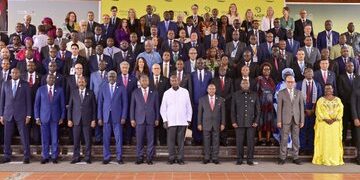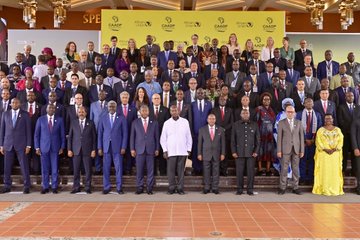African leaders have endorsed the Africa Agri-Food System 10-Year Strategy and Action Plan, aiming to intensify food production, agro-industrialisation, and inclusive growth.
During the three-day African Union Extraordinary Summit on the Comprehensive Africa Agriculture Development Programme (CAADP) held at Munyonyo Commonwealth Resort and Convention Centre, African leaders emphasised collective action, addressing food insecurity, and empowering women and youth to drive growth in the sector.
The President of Ethiopia, H.E Taye Atske Selassie commended Uganda for its exceptional hospitality and leadership in hosting the African Union summit in Kampala, which focused on transforming Africa’s agri-food systems.
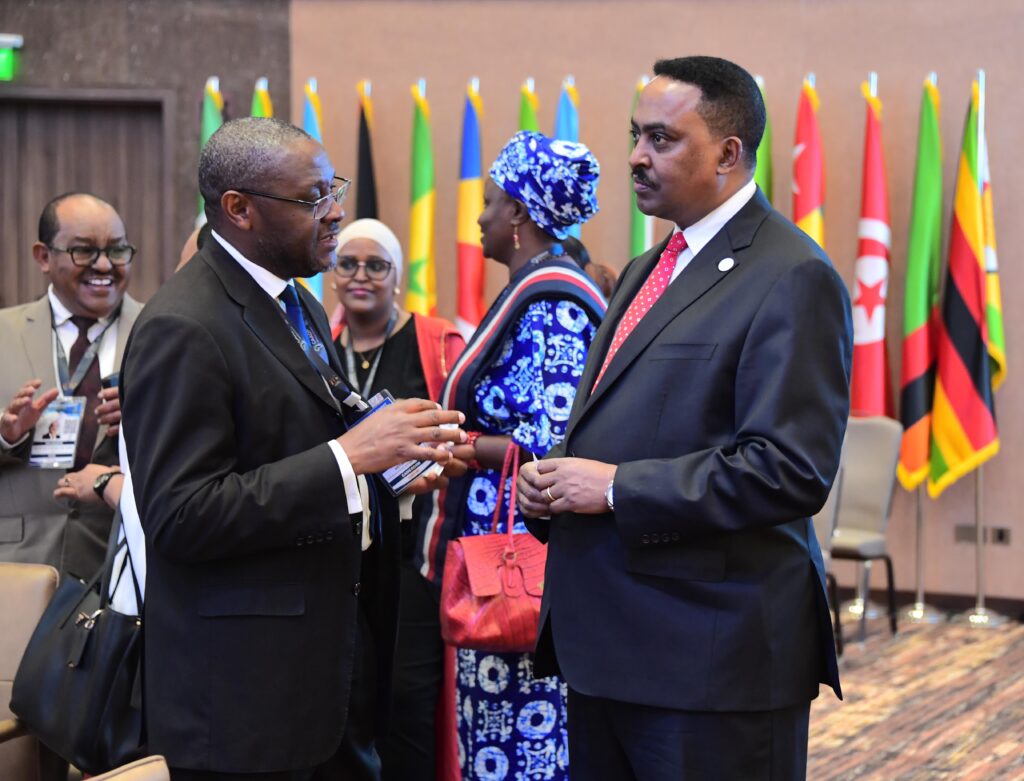
“I am deeply grateful to the government and people of Uganda for the warm hospitality extended to us upon our arrival in this beautiful country. Hosting this extraordinary summit is a testament to Uganda’s unwavering commitment to advancing Africa’s agri-food systems. We are truly honoured to be part of this significant gathering.”
The President also emphasised the urgency of addressing food security challenges and called for renewed collective action to achieve food sovereignty across the continent.
“It is an honour to address this esteemed assembly. I stand before you to highlight the urgent need for a unified and determined effort to achieve food sovereignty. Together, we can transform Africa’s agri-food systems for the benefit of our people,” he noted.

He noted that the Kampala Declaration adopted during the African Union summit serves as a blueprint for Africa’s collective efforts to transform its agri-food systems, ensuring food sovereignty and security for the continent’s growing population.
He also stressed that empowering women and youth is essential for unlocking Africa’s agricultural potential and fostering sustainable growth.
The Chairperson of the African Union Commission, H.E. Moussa Faki Mahamat, expressed great pleasure in visiting Kampala, a city “dressed in all its colors” to host such an important gathering focused on the continent’s agricultural future.
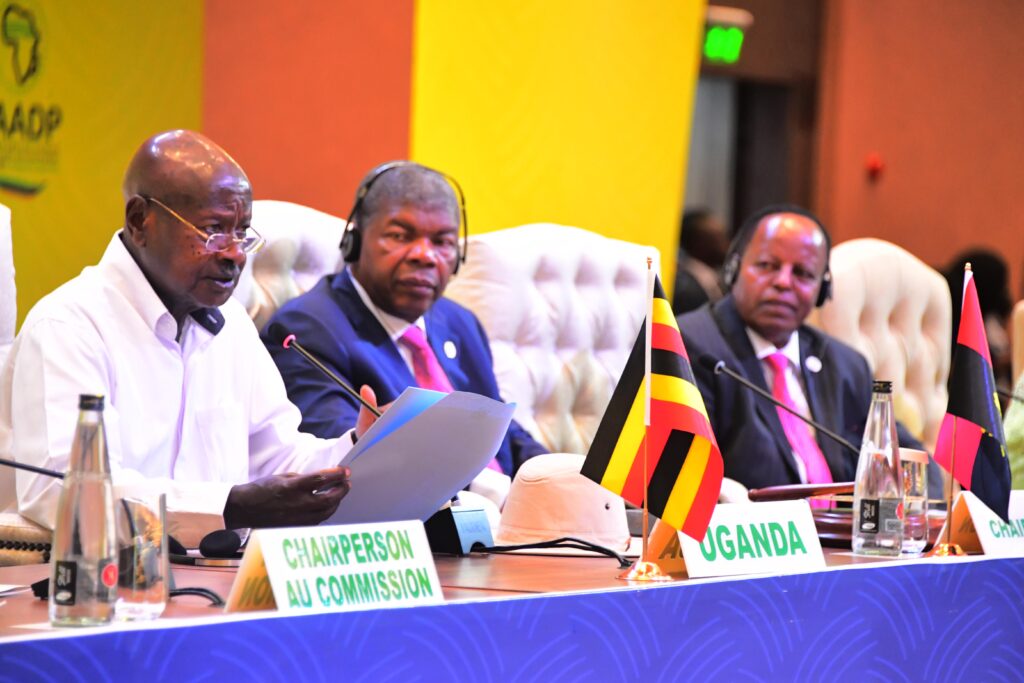
“It is with great joy that I set foot in this vibrant city of Kampala, which has been chosen to host this critical AU summit on agriculture,” said the Chairperson.
“I am particularly pleased with President Museveni and the government and people of Uganda. My warm thanks for the warm welcome and all the efforts made to ensure the success of this summit,” he said.
H.E Faki further praised Uganda’s leadership in agriculture, noting that holding the summit in Kampala was a sign of the country’s commitment to empowering farmers.
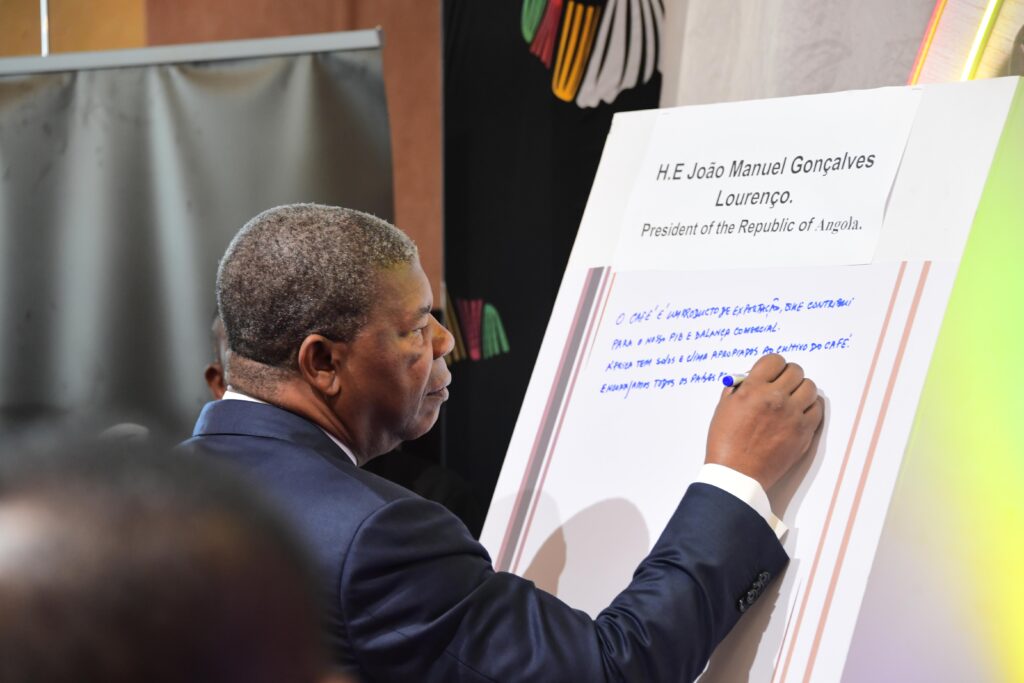
“This summit in Kampala is the right decision; it reflects Uganda’s unwavering commitment to supporting farmers. President Museveni, who himself is a farmer, is also a champion of transforming agriculture for wealth creation across Africa. Ending my tenure with the AU has been a learning experience, one I have gained from you.”
The Chairperson emphasised Africa’s strengths, highlighting that more than 60% of the continent’s population is young and over 60% of its land is arable.
However, he also pointed out the ongoing challenges of food insecurity, noting: “While Africa holds immense potential, hunger and food insecurity still claim lives. The profound dissatisfaction of Africa’s youth, the rise of urban uncertainties, and immigration all heighten our existential crises. But we must not blame the youth; the fault lies in systems that have failed to promote strategies that generate hope and prosperity.”
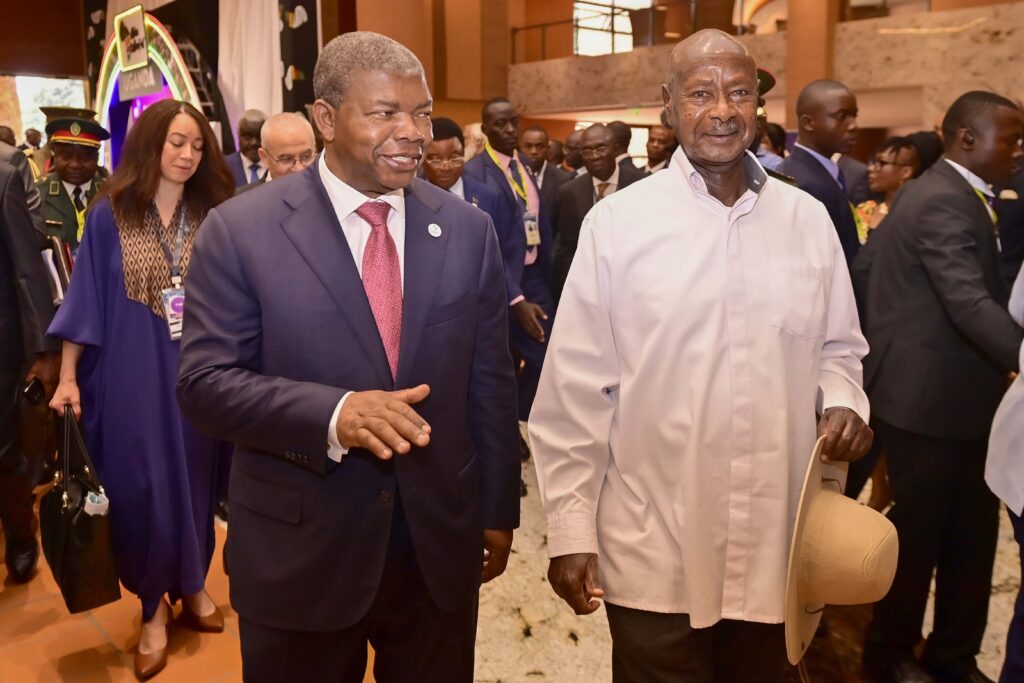
He acknowledged that these concerns were shared by both African leaders and citizens, emphasising the need for a concerted effort to address the continent’s agricultural challenges.
“The Malabo Declaration in Mozambique and the subsequent biannual programs have been moments of progress,” he noted.
“This is why I welcome the collaborative efforts of the African Union, regional economic communities, and our technical and financial partners. The work we begin here today will be known as the Kampala Declaration 2025, marking a new chapter in Africa’s agricultural transformation.”
The gathering aimed to finalise the CAADP Strategy and Action Plan 2026-35, which is expected to transform Africa’s agriculture.

The CAADP 2026-35 Strategy and Action Plan is built around six key objectives, including intensifying sustainable food production and agro-industrialization, boosting investment in agri-food systems, and ensuring food and nutrition security.
Other key objectives include advancing inclusivity and equitable livelihoods, building resilient agri-food systems, and strengthening governance.
CAADP was adopted by African Union member states in 2003 as a policy framework to drive agriculture-led growth, enhance food security and nutrition, and increase incomes in Africa’s predominantly agriculture-based economies.
The programme is anchored on seven ambitious goals set to be achieved this year.
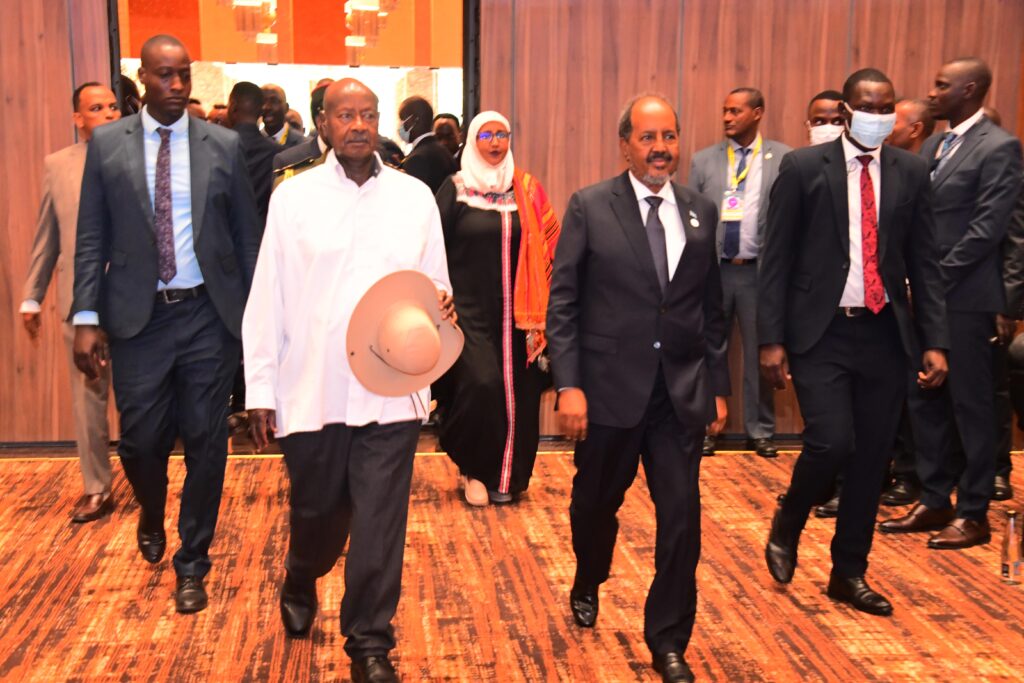
In 2014, African heads of state reaffirmed their commitment to these goals in the Malabo Declaration, emphasizing the need for accelerated progress. This follows the 2003 Maputo Declaration and 2014 Malabo Declaration, respectively. The African Union highlights that CAADP initiatives have significantly boosted Africa’s economy through agricultural productivity, trade, and efforts to reduce hunger and poverty over the past two decades.
According to the World Bank, the agricultural sector’s contribution to GDP in sub-Saharan Africa grew by 2% between 2015 and 2020.
The CAADP is Africa’s primary policy framework for driving agricultural transformation, enhancing food security, reducing poverty, and promoting sustainable economic growth. In the past, African governments committed to dedicating a minimum of 10% of public expenditure to agriculture, aiming for annual agricultural growth rates of at least 6% per annum.
In attendance were other Heads of state, including the President of Burundi, H.E. Èvariste Ndayishimiye, the President of the Republic of Kenya, H.E. William Ruto, the President of Angola, H.E. João Lourenço and the President of Somalia, H.E Hassan Sheikh Mohamud.
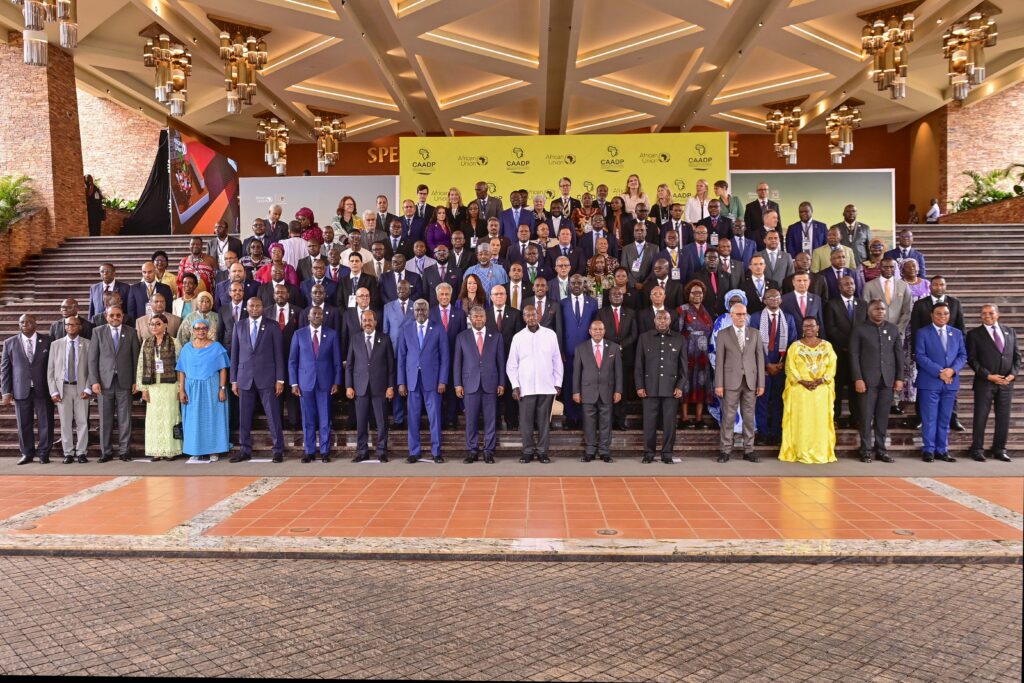
The summit highlighted the critical need for collaborative efforts to transform Africa’s agri-food systems, ensuring food sovereignty and economic resilience for the continent’s growing population.
The summit, which attracted over 2,000 delegates, including heads of state, agriculture experts, and development partners from 43 AU member state, concluded with the adoption of the Kampala Declaration 2025, a blueprint for transforming Africa’s agriculture.
The event was organised jointly by the African Union Commission, Department of Agriculture Rural Development Blue Economy and Sustainable Environment (DARBE), and African Union Development Agency-New Partnership for African Development (AUDA-NEPAD).
